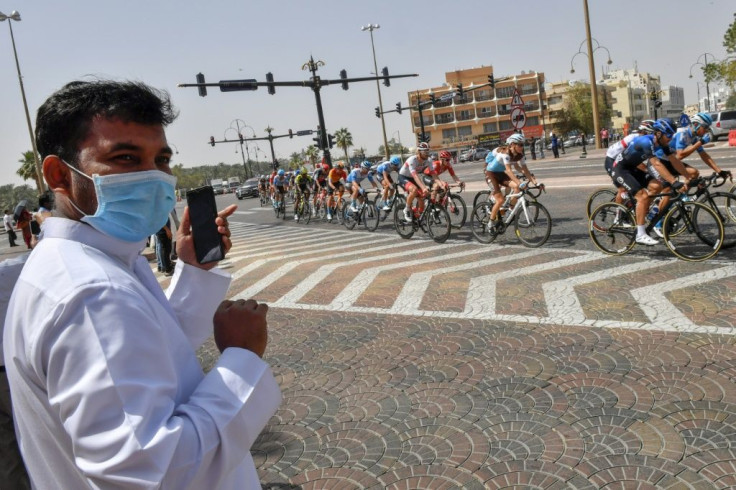Coronavirus Compounds Gulf Economic Woes As Oil Prices Slump

Energy-rich Gulf states have scrapped or postponed dozens of events as part of measures to contain the new coronavirus, denting economies already hurt by slumping oil prices.
From OPEC kingpin Saudi Arabia to the region's most diversified economy the United Arab Emirates, sports tournaments, economic conferences and major religious events have been sacrificed in attempts to curb the spread of the disease.
More than 150 coronavirus cases have been detected in Bahrain, Kuwait, Oman, Qatar, Saudi Arabia and the UAE, mostly among people returning from pilgrimages to Iran.
The Gulf region is already struggling to cope with decreasing oil revenues as the public health crisis paralyses economic giant China -- the world's biggest oil importer and buyer of Gulf oil.
Now Riyadh has suspended the "umrah", the minor Islamic pilgrimage to Mecca that draws millions, while other Gulf nations have restricted entry to foreigners.
Citing "precautionary preventive measures" against the disease that has killed some 3,200 people globally, organisers of the inaugural Red Sea International Film Festival in Jeddah announced it had been postponed indefinitely.
The bustling emirate of Dubai, known for hosting hundreds of conferences annually, has scrapped the Art Dubai exhibition, an international boat show and other events.
"We had plans to run a PR event for a jewellery brand during Art Dubai, and to host a gathering on the sidelines of the Saudi film festival," one French businessman who runs a public relations firm in Dubai told AFP.
"Both have been cancelled. I haven't slept well in three nights," he said of the impact on his business.
A number of sports events have also been postponed or cancelled, including cycling's UAE Tour, which was abandoned when two Italian support crew members were diagnosed with coronavirus. Six more related infections followed.
London-based Capital Economics said the spread of the new coronavirus had prompted it to lower its Middle East 2020 growth forecast by 0.5 percent to two percent.
"The UAE is the most vulnerable economy and the fallout threatens to ignite concerns over Dubai's debts," it said in a report.
If the crisis continues, it could affect the Dubai Expo 2020 global trade fair. Dubai has pinned its economic hopes on the mega-event, which it hopes will attract 25 million visitors from October.
Capital Economics estimates the six Gulf Cooperation Council states will lose some $40 billion of oil revenues this year, after prices crashed from about $70 a barrel in early January to a low of $50.
In a bid to shore up prices, the OPEC crude producing cartel and its allies are expected to agree to additional cuts in production when they meet on Thursday, further reducing much-needed revenues.
Virus containment measures have also hurt the tourism, aviation and retail sectors.
The UAE's major airlines, Emirates and Etihad, have asked their staff to take unpaid leave as they cancel and reschedule flights.
"In the face of pandemic, amid continued lockdown of communities and corporations, supply chains will get disrupted, consumption and consumer spending will take a hit," said M.R. Raghu, head of research at Kuwait Financial Centre (Markaz).
© Copyright AFP 2024. All rights reserved.





















